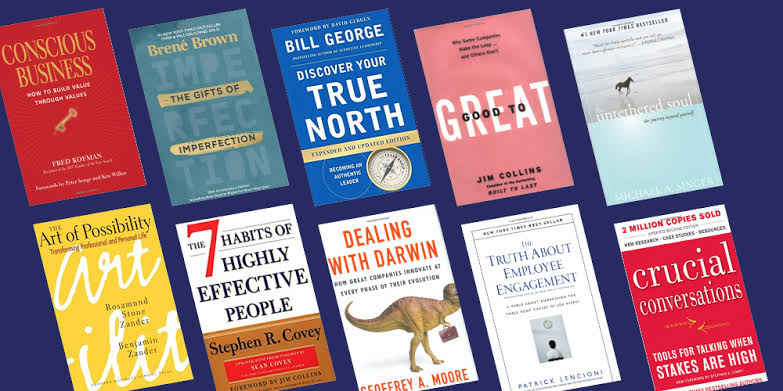In a world where team dynamics are constantly evolving, effective leadership is more crucial than ever. Whether you’re leading a small startup, a corporate team, or a non-profit organization, your ability to inspire and empower others can determine your success.
Leadership books continue to serve as valuable resources for those looking to strengthen their influence and motivate their teams. These books offer tested strategies, personal insights, and new perspectives from some of the most respected voices in business, psychology, and organizational development.
As of July 2025, a fresh wave of leadership literature has emerged, blending classic wisdom with modern challenges. From emotional intelligence to adaptive leadership, the following books provide both practical tools and deep inspiration.
“Leaders Eat Last” by Simon Sinek
Simon Sinek’s Leaders Eat Last remains one of the most influential leadership books even in 2025. Its central message—that great leaders put the well-being of their teams before their own interests—resonates strongly in today’s corporate culture.
Sinek emphasizes the importance of building trust, fostering a sense of belonging, and creating environments where people feel safe and supported. These principles are especially vital in remote and hybrid work models, where team cohesion is harder to achieve.
The book draws from both military and corporate examples, illustrating how servant leadership builds loyalty, resilience, and long-term success. It’s a must-read for managers who want to lead with empathy and purpose.
“Dare to Lead” by Brené Brown
Brené Brown’s Dare to Lead is a powerful exploration of vulnerability, courage, and authenticity in leadership. With her background in social work and behavioral research, Brown offers a refreshing take on what makes people truly influential.
She argues that the best leaders are those who are not afraid to admit mistakes, ask questions, and have difficult conversations. As of 2025, with mental health and psychological safety being top priorities in many workplaces, Brown’s teachings are more relevant than ever.
Her practical frameworks—like the “Rumbling with Vulnerability” exercise—help leaders create stronger, more human connections with their teams. This book is ideal for those seeking to lead with heart while maintaining accountability.
“The Infinite Game” by Simon Sinek
In The Infinite Game, also by Simon Sinek, leaders are encouraged to think beyond short-term wins and instead adopt a long-term vision that focuses on sustainability, innovation, and meaning.
This book has gained renewed attention in 2025 as organizations seek to recover from global disruptions and realign their missions. Sinek explains the difference between finite and infinite mindsets, pushing leaders to invest in people, culture, and legacy.
For teams navigating uncertain futures, The Infinite Game provides a guiding philosophy that values adaptability over competition. It’s a motivating read for leaders in fast-changing industries like tech, healthcare, and education.
“Start with Why” by Simon Sinek
Another of Sinek’s contributions, Start with Why, teaches that the most inspiring leaders and companies are those that understand and clearly communicate their purpose.
The book outlines how clarity of purpose leads to loyalty, engagement, and innovation. In an era where Gen Z employees and younger millennials value meaning over money, this message hits home.
Leaders can use the “Golden Circle” model from the book to help their teams connect to a larger cause, making everyday tasks feel more meaningful. It’s especially useful for startups, NGOs, and purpose-driven businesses looking to solidify their brand culture.
“The 5 Levels of Leadership” by John C. Maxwell
John C. Maxwell’s The 5 Levels of Leadership breaks down leadership into a clear, step-by-step growth journey. From gaining positional authority to reaching the pinnacle of influence through personal development, this book provides a practical framework.
Maxwell’s insights are easy to apply and highly actionable, making this a favorite among both new and seasoned leaders. The 2025 edition includes updates that reflect current trends like remote leadership, digital team management, and inclusive workplace culture.
For those building leadership skills from the ground up or mentoring rising managers, this book serves as both a guide and a motivational tool.
“Leadershift” by John C. Maxwell
In Leadershift, Maxwell dives deeper into the concept of adaptability. He outlines eleven shifts leaders must make to thrive in a fast-changing world—such as moving from “plan” to “adapt,” or from “maintaining” to “creating.”
This book is particularly impactful for teams going through transitions, whether it’s a company merger, market disruption, or digital transformation. It encourages leaders to remain flexible, curious, and open to learning.
In 2025, where business landscapes can change rapidly, Maxwell’s concept of the “Leadershift” is not just insightful—it’s essential.
“Atomic Habits” by James Clear
While not solely a leadership book, Atomic Habits by James Clear is a transformative read for anyone looking to influence behavior—starting with their own.
Clear’s strategies for building better habits and breaking bad ones are rooted in psychology and neuroscience. Leaders can apply these techniques to cultivate a high-performance team culture where good practices are reinforced daily.
By focusing on small, consistent changes, this book teaches how to inspire others without grand gestures. It’s especially helpful in goal-setting, time management, and productivity—areas that all effective leaders must master.
“Multipliers” by Liz Wiseman
Liz Wiseman’s Multipliers explores why some leaders drain talent while others amplify it. She introduces the concept of “Diminishers” vs. “Multipliers,” showing how the best leaders bring out the genius in their people.
This book is packed with real-life examples and practical tools to help leaders develop coaching skills, delegate effectively, and empower decision-making. It’s a favorite among HR professionals and team leads who want to create a high-trust, high-performance culture.
In today’s work environment—where retaining talent is more challenging than ever—Multipliers offers crucial insights for inspiring loyalty and creativity.
Conclusion: Building a Culture of Inspiration Through Reading
Leadership is not a destination but a continuous journey. The best leaders are those who remain learners—always seeking to grow, reflect, and refine their approach.
By exploring the books listed above, team leaders can uncover fresh insights and build deeper connections with those they lead. Whether you’re guiding a remote team, managing a department, or leading a small business, these books offer timeless wisdom backed by modern relevance.
As of July 2025, the challenges of leadership have grown more complex—but so have the tools for meeting them. Reading the right books at the right time can be the spark that turns a team from average to exceptional.



